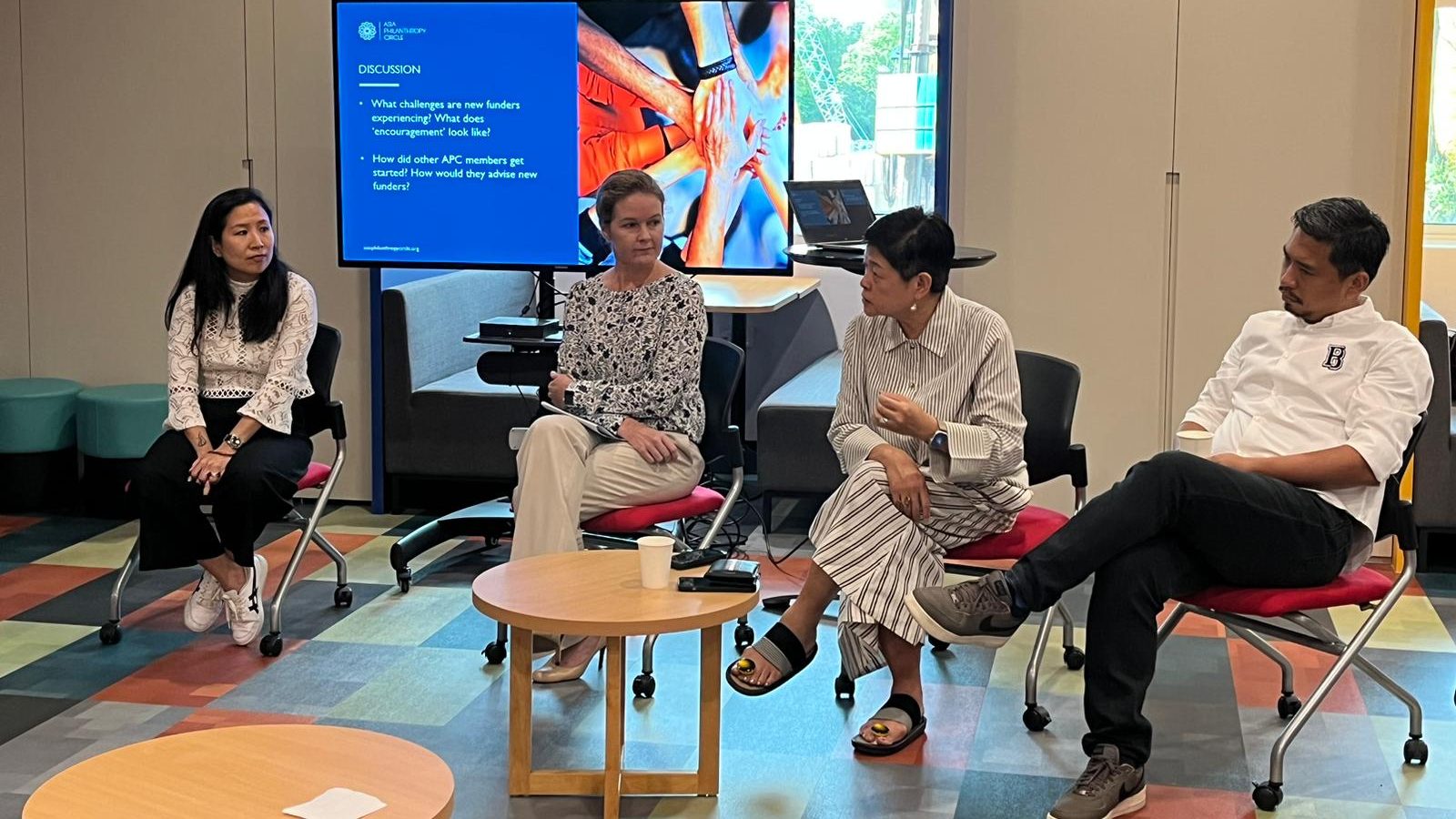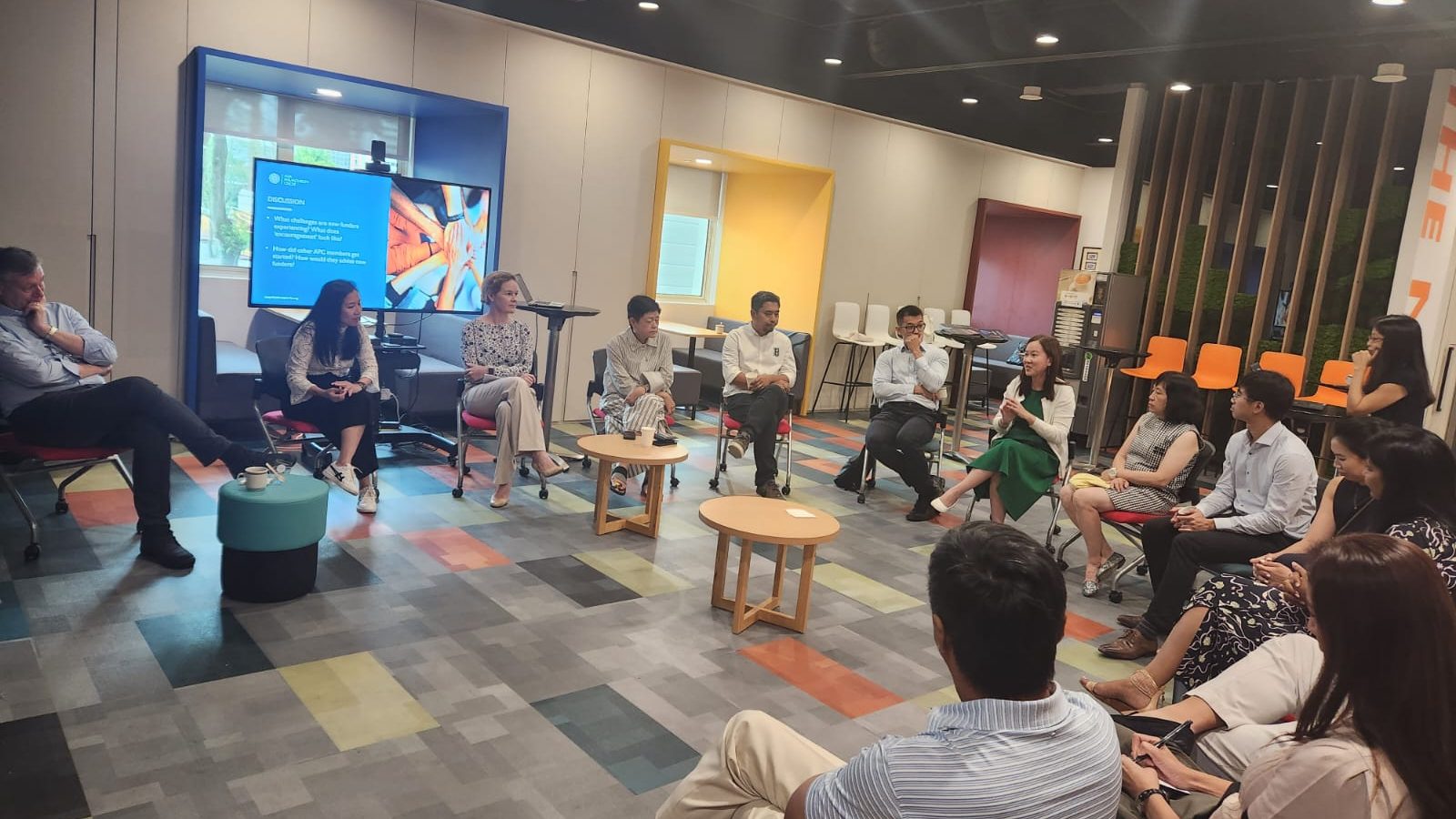New and experienced funders convene to better understand the Singapore social sector, how they can add value, and how to leverage their resources most effectively.
BY ABBIE JUNG, ASIA COMMUNITY FOUNDATION

In April 2023, APC convened a roundtable discussion to help APC members—many of whom are new to Singapore—to better understand the Singapore social sector, how they can add value, and where their resources can be most effectively channelled.
APC member and National Council of Social Services (NCSS) President Anita Fam shared an overview of the social sector landscape. NCSS is an umbrella body for some 450 social sector organisations, and is a Statutory Board under the Ministry of Social Family and Development in Singapore. One of its main mandates include building up and professionalising the social sector through capacity-building for its member organisations. It is also using a new collective impact approach, which they have co-created with various stakeholders—including the public sector, social services, and the corporate sector. Most recently, NCSS launched a new SG$5 Million 4ST Partnerships Fund managed by The Majurity Trust (TMT) to support NCSS members, social enterprises and ground up initiatives.
TMT CEO Martin Tan shared how the Majurity Trust supports the Singapore social sector. Co-founded by APC member Danny Yong, TMT is a philanthropic platform and ecosystem enabler guided by key 10-year trends in Singapore, including declining collective mental health, increasing longevity, widening debates over how social needs are handled, and growing economic insecurity.
APC members—both new funders and experienced funders alike—also came together for a lively sharing about their own challenges working in the Singapore social sector.

Sharing challenges and opportunities
The active engagement of the Singapore government in the social sector can obfuscate some of the challenges faced by the social sector. Several members felt that local non-profit organisations are complacent because there is so much government funding available; others noted that only organisations addressing issues deemed critical by the government are well-funded—so while many non-profits do have large cash reserves, there are many others that are strapped for resources.
Some members mentioned the high cost of operating in Singapore, which meant that philanthropists get less “bang for their buck” when funding locally, compared to the number of lives they can impact overseas. However, members discussed how this could be offset by the tax incentives offered by the government to encourage giving.
APC member Amanda Clarke (Manan Trust), who is relatively new to Singapore, shared that she finds the social sector in Singapore very progressive, in that people are interested to collaborate with each other. Adding to this, Raman Sidhu (Octava Foundation) shared that because the sector was small and everyone knew each other, it provided an opportunity and safe environment to explore meaningful collaboration.
Members also discussed different ways to support their Singapore non-profit partners, as well as to help scale their impact. APC member Pang Sze Khai (Octava Foundation) felt it is important to provide capacity-development support so that partners could think about their organisational sustainability (eg fundraising capability), and move beyond service delivery. Claire Chua (Quantedge Advancement Initiative) shared that in Singapore, she was able to use levers not available when funding overseas—such as serving on boards, helping to shape an organisation, bringing in best practices, or helping with organisational strategy.
Given Singapore’s large and stable ecosystem with many experienced actors, one way to further the impact of partners while supporting organisations in countries is to share successful models and experiences. Members agreed that some models are definitely replicable, after adjusting for different socio-cultural contexts.
It is understandable to be frustrated in terms of getting started in Singapore—being new and not knowing what or who to fund. Members recommended:
- Being patient and really trying to understand who you are, what resources you have both as an individual and as an organisation;
- Finding ways to maximise impact by leveraging resources, networks, expertise, and skilled staff;
- Starting with many small learning grants to gain exposure to many different organisations and models—ranging from grassroots organisations to social enterprises and traditional non-profit organisations;
- Explore collectives and pooled funds;
- Find good partner organisations;
- Most importantly: Get started!
Members interested in further information about Anita and Martin’s presentations can download them here (Password: 2023SGRT2).
